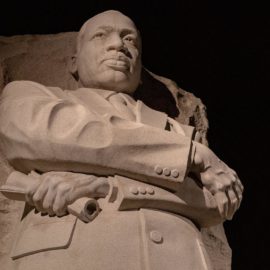
Gordon Plaza needs to be moved. They filed a court filing suing the Mayor and city to be remove and resettled and just lost. THe city is, according to the court, moving in a right and proper manner to move them.
Residents of the Gordon Plaza subdivision were dealt another legal setback in their effort to force Mayor LaToya Cantrell and the city to move them from homes built atop a toxic landfill. The 5th U.S. Circuit Court of Appeals in New Orleans upheld a district court decision that found the city was taking proper steps to protect the health of the Gordon Plaza’s residents. As the original owner of the landfill, the city is required to take “removal actions” that reduce exposure to the site’s toxic chemicals. But in Monday’s appeals court decision, Judge Edith Brown Clement wrote that “removal” can, under federal law, include maintenance operations, which in the city’s case has included lawn mowing and fence repairs at the subdivision, which sits between Florida Avenue and Higgins Boulevard. “Gordon Plaza (residents) have failed to point to authority clearly interpreting ‘removal’ to exclude operation and maintenance activities,” wrote Clement, who was appointed to the appeals court by President George W. Bush in 2001. “We hold that the city’s maintenance obligations … are ‘removal’ actions.”
nola.com
The Tulane Environmental Law Clinic says the judge stretched the law in her ruling.
Lauren Godshall, of the Tulane Environmental Law Clinic, which is representing Gordon Plaza residents, said the laws governing toxic sites are broadly written, but allowing the city to define “removal” as “fence maintenance and lawn mowing” seems like a stretch. “The city is required to do ‘diligent removal action,’” she said. “Our argument was they have to remove either the people or the problem. They haven’t done either.” The Mayor’s Office was not immediately available to comment on the decision. Last month, the City Council earmarked $35 million in the capital budget toward moving Gordon Plaza residents out of the subdivision.
A good gesture by the council but it has no teeth.
Some residents were skeptical of the move, calling it a largely symbolic gesture because many proposed items in the city capital budget never actually receive funding. Cantrell has stated her support for residents’ relocation, but neighborhood leaders were disappointed when they saw that her 2022 budget proposal made no mention of Gordon Plaza. Instead, Cantrell administration officials said they planned to spend about $2 million to assess the land and plan relocations.
In the Mayor’s defense, failure to plan is planning to fail. But they have had how many years to do the planning so this statement rings hollow.
The city has offered supportive words but nothing more, Gordon Plaza resident Jesse Perkins said. “Everything the mayor does, it’s just blowing smoke,” said Perkins, a member of Residents of Gordon Plaza Inc., a nonprofit representing the subdivision’s residents. The appeals court decision is the latest in a long line of legal actions that haven’t gone residents’ way, Godshall said. “There’s been a lot of litigation over the years and none of it successful because the residents are still there,” she said.
The problem dates back to when the first resident was moved in on what was a trash dump and widely known as one.
Gordon Plaza was built atop the Agriculture Street landfill during the 1970s and 1980s and promoted as inexpensive housing for Black residents. But the site’s toxic legacy became widely known in 1994, when it was labeled one of the U.S.’s most contaminated Superfund properties by the federal government. Between 1994 and 2001, U.S. Environmental Protection Agency contractors fenced off part of the site, removed about 2 feet of soil in some areas and then placed mats and clean soil over some of the contaminated soil. Many residents contend the environmental remediation was incomplete, exposing them to toxic chemicals for decades. In 2019, a report from the Louisiana Tumor Registry found that the Desire neighborhood, which includes Gordon Plaza, has the second-highest consistent rate of cancer in the state. About 65 homes remain at the subdivision. Most are owner-occupied, Perkins said.
They should never have been moved there but we know about systemic racism and this is another example of what this aspect of our nation costs us. If I was in Virginia or other states I could not write that statement. Where is our history going?



